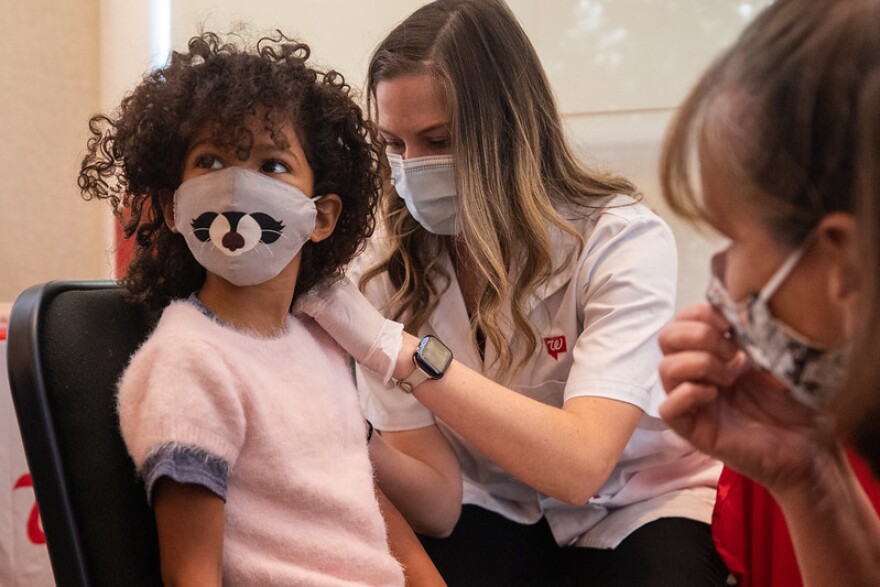Austin Public Health officials say they realize many people are tired of talking and hearing about COVID-19. But with “remarkably contagious and infectious” omicron subvariants circulating this summer, they say now is the time to “redouble our efforts” to protect ourselves and others.
Here are the top five messages Austin Public Health has about COVID-19 this summer.
1. We could see the return of an indoor mask mandate. But it’s not too late to try and prevent that.
Right now, Travis County's community risk level is in the "medium" range. If that level jumps to "high," Austin-Travis County Health Authority Dr. Desmar Walkes said an indoor mask mandate could be triggered.
“When we get to that high level,” Walkes said, “the next step will be masking in public indoor settings, regardless of vaccination status.”
But APH says one way people can help stem this summer surge is to go ahead and mask indoors to try and keep that community level from rising.
“If we just put masks back on for a couple of weeks,” Walkes said, “we could protect ourselves from becoming ill, avoid the inconvenience of having to be out of work and not being able to go to family functions and public social gatherings because we are sick. That’s what it would take for us to get this surge under control.”
Walkes said high filtration masks like an N95 or KN95 provide better protection that will last for longer periods of time. But she said any well-fitting mask that someone will wear consistently inside is better than nothing.
2. Outdoor activities are safer right now than indoor activities.
Ventilation is better outside than inside. So as long as people stay aware of the heat and stay hydrated, gathering outdoors is a safer option during this COVID-19 surge.
Walkes said “it would be better from a ventilation standpoint to eat outdoors.”
She said the same goes for any other group social activity like going to a bar or concert. This summer, outdoors is safer than indoors.
3. Get vaccinated and get boosted this summer.
This message is not new, as vaccines have been available for well over a year now. But Austin Public Health officials encourage everyone who has not been vaccinated yet to get the first series of shots, especially children between 6 months and 5 years old who more recently became eligible for vaccines.
“This vaccine is safe,” Walkes said. “It does help keep individuals who are at risk from being hospitalized” with severe illness.
She said Austin Public Health is still trying to reach people who have not gotten a first shot and are still concerned about the vaccine’s safety. Walkes said different messages are needed at this point in the pandemic.
“It’s not always a universal approach,” Walkes said. “It’s not a one-size-fits-all approach that always works. A lot of times, it’s a one-on-one conversation with active listening and addressing the concerns that an individual may have and answering questions.”
Austin Public Health, Travis County and community partners host weekly, free COVID-19 vaccine clinics.
4. Protection against COVID-19 helps you as well as the community.
People at low risk may not think much about taking COVID-19 precautions. But Walkes said people should think about the community at large when it comes to COVID-19 mitigation.
“I’m hopeful that we can get back to a place where we are taking care of our neighbor and not just ourselves,” Walkes said.
She said preserving the health care system for the entire community must remain a top priority beyond caring for COVID-19 patients.
“We still need our health care system to be able to take care of people who have had heart attacks or had a car accident or need to go in because their diabetes is uncontrolled,” Walkes said.
5. The number of local infections is likely higher than any official case count shows.
Walkes said COVID-19 case counts in Austin-Travis County have been rising this summer and that case totals are likely an undercount due to the number of unreported positive tests from home testing kits.
Still, Austin Public Health may close its free, walk-in COVID-19 testing site. Walkes said APH has plans to close the testing site at the former Metz Elementary School at the end of July because home testing kits are so widely available. But she said those plans could change if demand warrants.









